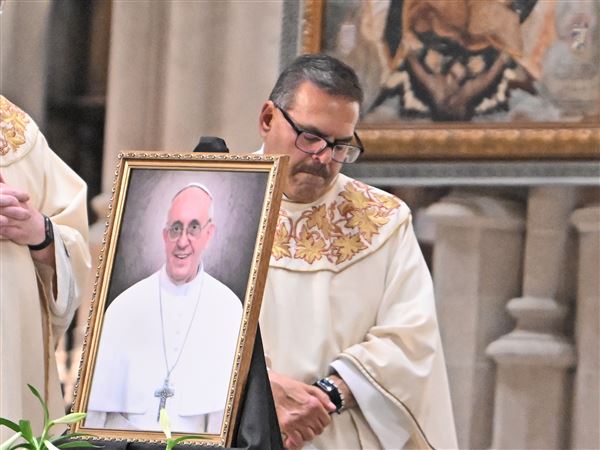A few months after he became president of the United States, Lyndon Johnson told Bill Moyers, his speech writer and adviser, that he had precious little time to enact his legislative agenda. “In an ideal world,” Mr. Johnson explained, a president would have two, four-year terms. “I won’t make it that far, of course, so let’s assume we have to do it all in 1965 and 1966, and probably in 1966 we’ll lose our big margin in Congress. That means in 1967 and 1968 there will be a hell of a fight.”
Penguin Press ($29.95)
Mr. Johnson got it exactly right. In 1964, ’65, and ’66 he drove through Congress the most far-reaching set of reforms since Franklin D. Roosevelt’s New Deal. Mr. Johnson’s Great Society accomplishments included civil rights and voting rights bills, Medicare and Medicaid, the Elementary and Secondary Education Act, Head Start, the War on Poverty, and the Immigration and Nationality Act.
In the 1966 midterm election, the Democratic Party lost seats. And in 1968, Mr. Johnson announced that he would not seek re-election as president. Majority leader of the United States Senate in the 1950s, Mr. Johnson was a masterful legislative tactician.
His command of the rules and the culture of the House and Senate, the strengths, weakness, and hobbyhorses of his colleagues, and his ability to coax, convince, and coerce them to vote his way, Julian Zelizer, a professor of history and public affairs at Princeton University, acknowledges, were crucial in getting so much landmark legislation passed.
That said, Mr. Zelizer maintains that personality and political savvy are not enough to control Congress. In “The Fierce Urgency of Now: Lyndon Johnson, Congress and the Battle for the Great Society,” Mr. Zelizer suggests that Mr. Johnson deserves credit less for steamrolling bills through “a recalcitrant Congress” than for “taking advantage of extremely good legislative conditions when they emerged.”
The “liberal hour” during which The Great Society was born, he argues, was characterized by political pressure from progressive grass-roots interest groups and social movements and huge Democratic majorities in the House (295 Democrats and 140 Republicans) and Senate (68 Democrats and 32 Republicans) in 1965 and 1966.
Political context does, indeed, matter. And the Democratic landslide of 1964, which brought to Washington the most liberal class of elected officials in decades, clearly greased the wheels for Mr. Johnson’s Great Society.
Less clear (in the 1960s and in 2015), however, and virtually impossible to measure, is the impact of public opinion and grass-roots activity on the votes of politicians.
Indeed, in the extent to which it transformed Capitol Hill (through sit-ins, protest marches, petitions by church members and leaders, and the mass media attention these activities generated) and paved the way for legislation mandating an end to racial discrimination in public accommodations and voting, the civil rights movement may well be more the exception than the rule.
Significant external pressure was not much in evidence as congressmen and senators decided to vote yea or nay on other signature Great Society measures. And, as Mr. Zelizer points out, the most well-organized interest groups denounced Medicare and Medicaid as socialized medicine.
As he surveys lawmaking in the “fabulous” 88th and 89th Congresses, Mr. Zelizer reminds us how quickly the window closed on Lyndon Johnson and his liberal allies. The war in Vietnam — and the “credibility gap” that accompanied it — took a toll on the president’s popularity (his job approval fell to 39 percent in 1968) and emboldened his critics.
The election of 1966, as midterms are wont to do, went against the political party of the sitting president. Forced to accept budget cuts by deficit hawks, the once legendary Master of the Senate fumed at his subservience to Wilbur Mills, chairman of the House Ways and Means Committee: “I’m not master of a damn thing. … I’m not master of nothing. … We cannot make this Congress do one damn thing that I know of.”
LBJ would surely have been pleased, Mr. Zelizer emphasizes, that the Great Society reforms have lasted far longer than the political coalitions that built them. The lesson Lyndon Johnson had learned, Mr. Zelizer suggests, should command the attention of all “president-centric” historians — and the political pundits who think that Barack Obama can break the partisan gridlock in Congress by simply emulating the “treatment” employed by our nation’s 36th president.
Glenn C. Altschuler is the Thomas and Dorothy Litwin Professor of American Studies at Cornell University.
First Published: January 18, 2015, 5:00 a.m.
















